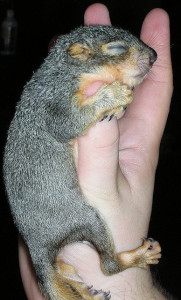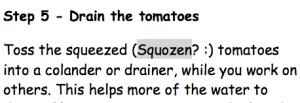M paused as he explained the definition of the word. “You know that weird string of letter-like symbols when you look it up in the dictionary?” he said. “Do any of you have a clue what that’s all about?”
The nerd in me took .02 seconds to pipe up. “That’s the International Phonetic Alphabet,” I said, equal parts proud and embarrassed.
“Of course it is,” said M.
The International Phonetic Alphabet, or IPA for short (not as tasty as certain fermented beverages that also go by the same name, but at least as interesting, in certain circles) is a kind of symbolic spelling that linguists use to represent how a word is pronounced without stumbling over spelling conventions. The IPA applies across all known languages or dialects. IPA spelling shows up immediately after the boldfaced entry of every word in the dictionary, between two backslashes, as with this example from Merriam Webster:
dic·tio·nary: noun \ˈdik-shə-ˌner-ē\
Since I was a somewhat nerdy child, and did use the dictionary while I was growing up (going through the pupae stage of my bookworminess, I guess you could say), I had long wondered about those symbols myself. Although I supposed they were related to pronunciation, I was never quite sure how until I took my first phonetics class.
The sounds of language
Ahh, phonetics. The study of the sounds of speech. Typically, when we’re talking about how a writer renders a particular dialect or language, we’ll say “s/he wrote that dialect phonetically” to mean that the spelling evokes sound rather than writing conventions. “I’m gonna” versus “I’m going to,” for example. The thing is, every author has his or her own idea of what that dialect actually sounds like, and all kinds of spelling variations can be used. How do I know what I’m hearing in my own head is what the writer intended?
This poses a problem just among English-speakers. Try to get an American English speaker or a Welsh English speaker to write “phonetically” for an Aussie or a Kiwi. They will just look at each other curiously. The vowels for all our varied English dialects are totally different.
Enter the IPA. Every symbol is assigned one sound. Additional notations known as diacritics add details such as whether the sound is voiced or voiceless, aspirated (followed by a puff of exhaled air) or not. Although based on the Latin alphabet, IPA contains plenty of other funky symbols to keep digital transcriptionists busy.
To the layperson, IPA looks like a bunch of hieroglyphics. Learning IPA is the equivalent of learning a new written language. It’s most useful in academic circles and for students of language. (I did say I was a nerdy child, right?)
IPA in daily life and in Shakespeare
We could use it to represent the sounds of English today. All of us, native speakers or not, have at one point complained about how English spelling and pronunciation don’t seem to have ANYTHING to do with each other sometimes.
But there was a time when English writing was much more “phonetic” than it is today. And scholars say Shakespeare captures a lot of that language.
The fruits of research into the language of Shakespeare have even taken the stage at The Globe Theatre in London, where a number of productions were performed in what is called OP, “original pronunciation.”
Original pronunciation, you say? How do they know what Shakespeare’s compatriots actually sounded like?!
For a fuller discussion, watch this video. In brief, according to the noted historical linguist David Crystal, there are three main types of evidence researchers use to determine the pronunciation of historical dialect. First, they look at what people writing at the time have to say about how their language is spoken. Second, they use the written evidence (since English used to be much more phonetic, spelling gives us helpful clues). And third, researchers look at poetry and rhyme, on the concept that poetic stanzas were meant to rhyme, and not look strange as they do to the modern eye.
The result is something that doesn’t sound at all the way most of us are used to hearing Shakespeare pronounced (watch for examples). To my ears, it even sounds sort of Irish. I swear it’s not the apostrophe in my name talking.
I’m pretty sure The Globe’s production staff put together a pronunciation guide for the actors who had to learn the script in OP. I doubt it was an IPA guide, though.
Bi-ˈkəz ðæt wʌd bi ˈkɹe-zi!1
===
What’s your favorite nerdy discovery?
1 With apologies for any mistakes I may have made, or any dialectal offenses I may have incurred.
Like this:
Like Loading...



